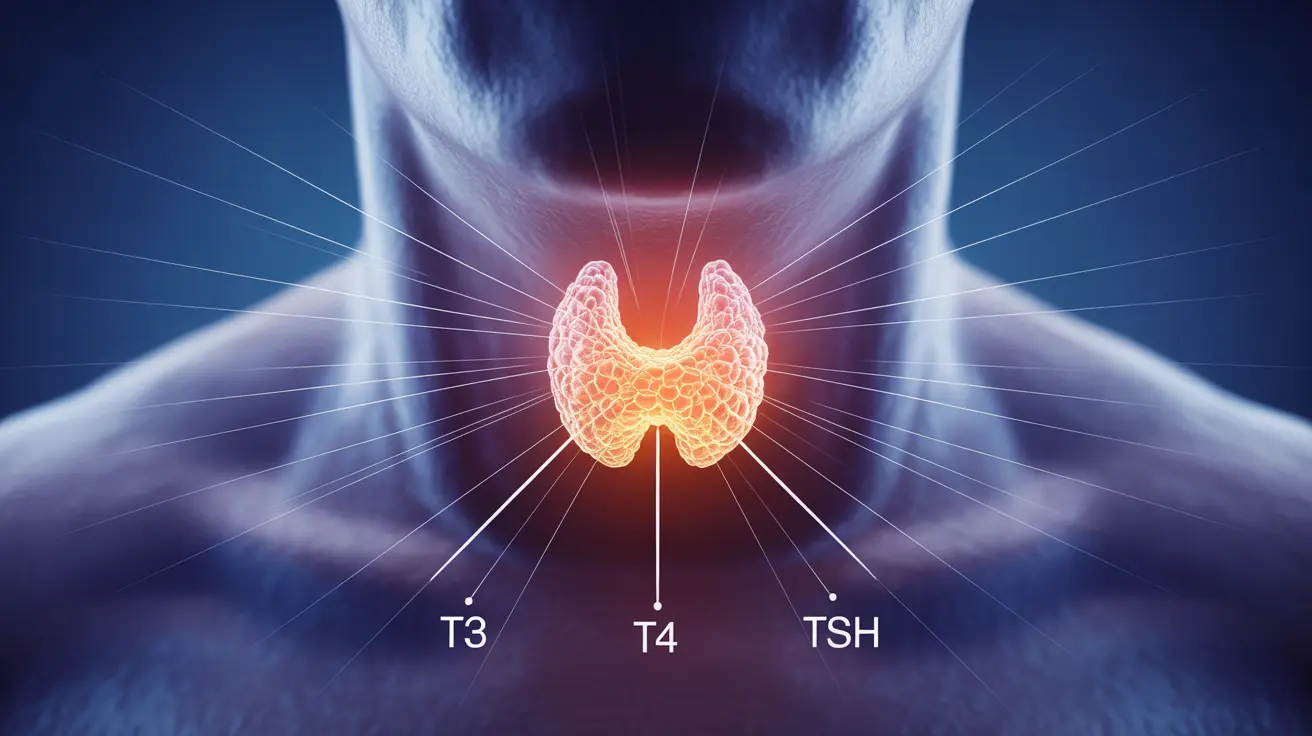Living with hyperthyroidism requires careful attention to lifestyle choices, including decisions about alcohol consumption. For many people with an overactive thyroid, questions about whether it's safe to drink alcohol and how it might affect their condition are common concerns. Understanding the relationship between hyperthyroidism and alcohol is crucial for managing the condition effectively.
This comprehensive guide explores the complex interactions between alcohol and hyperthyroidism, including its effects on thyroid function, potential risks, and important considerations for those managing this condition.
How Alcohol Affects Thyroid Function
Alcohol can significantly impact thyroid hormone regulation in several ways. When consumed, alcohol can interfere with the thyroid gland's ability to produce hormones and can affect how the body processes these important hormones. This interference may be particularly concerning for individuals with hyperthyroidism, who already experience irregular thyroid hormone levels.
Impact on Thyroid Hormone Levels
Research suggests that alcohol consumption can affect the production and regulation of thyroid hormones, including T3, T4, and TSH (thyroid-stimulating hormone). Regular alcohol use may:
- Disrupt the thyroid's hormone production process
- Affect the conversion of T4 to T3 in the liver
- Interfere with the body's ability to regulate thyroid hormone levels effectively
Symptoms and Complications
For people with hyperthyroidism, alcohol consumption may exacerbate existing symptoms or create new challenges. Common concerns include:
- Increased heart rate and palpitations
- Enhanced anxiety and nervousness
- Greater difficulty with sleep
- Worsened tremors
- Increased risk of dehydration
- Potential liver stress from both the condition and alcohol
Medication Interactions
Many medications used to treat hyperthyroidism can interact with alcohol, potentially leading to serious complications. Common hyperthyroidism medications that may interact with alcohol include:
- Anti-thyroid drugs (such as methimazole and propylthiouracil)
- Beta-blockers
- Other supportive medications
Guidelines for Alcohol Consumption
While complete abstinence may not be necessary for everyone with hyperthyroidism, careful consideration should be given to alcohol consumption. Consider these guidelines:
- Consult with your healthcare provider about your specific situation
- Monitor your symptoms when drinking
- Stay well-hydrated
- Consider limiting or avoiding alcohol during active treatment phases
- Pay attention to medication timing and potential interactions
Frequently Asked Questions
Can drinking alcohol make hyperthyroidism symptoms worse, or is it safe for people with overactive thyroid?
Alcohol can potentially worsen hyperthyroidism symptoms by increasing heart rate, anxiety, and sleep disturbances. While moderate drinking may be safe for some individuals, it's important to discuss specific guidelines with your healthcare provider as each case is unique.
How does alcohol affect thyroid hormone levels (T3, T4, TSH) in people with thyroid disorders?
Alcohol can interfere with thyroid hormone production and regulation, potentially affecting T3, T4, and TSH levels. It may disrupt the conversion of T4 to T3 in the liver and impact the body's ability to maintain proper hormone balance.
Is there a link between regular alcohol use and an increased risk of developing thyroid problems like hyperthyroidism or hypothyroidism?
Research suggests that regular, heavy alcohol consumption may increase the risk of thyroid dysfunction. However, moderate drinking hasn't been definitively linked to developing thyroid conditions, though it may affect existing thyroid disorders.
What are the potential risks of mixing alcohol with medications used to treat hyperthyroidism?
Combining alcohol with hyperthyroidism medications can lead to increased side effects, reduced medication effectiveness, and potential liver strain. Some medications may interact specifically with alcohol, causing dangerous reactions.
Should people with hyperthyroidism avoid alcohol completely, or is moderate drinking considered safe?
While complete avoidance isn't always necessary, moderation is crucial. The safety of alcohol consumption varies by individual, depending on factors like medication regimen, symptom severity, and overall health status. Consulting with a healthcare provider can help determine appropriate guidelines for your specific situation.




